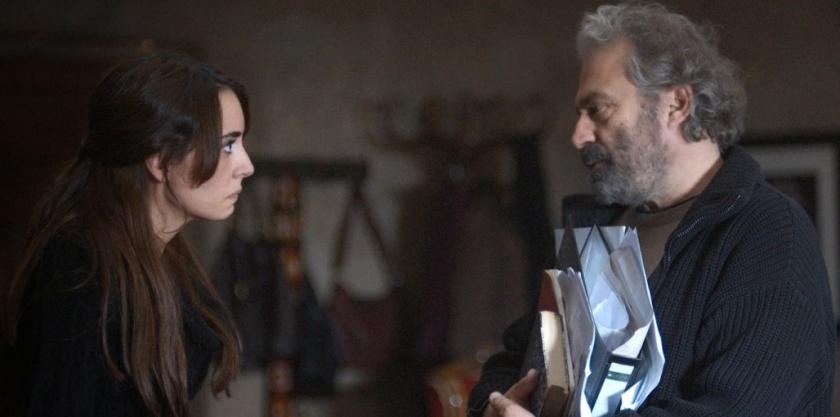Nuri Bilge Ceylan’s Cannes Palme d’Or winner is an epic chamber piece by a contemporary great. From the moment a stone suddenly smashes the car window of landlord Aydin (Haluk Bilginer), physical threat darkens the corners of the remote Anatolian hotel-home he shares with his bitter, bored sister Necla (Demet Akbao) and young, emotionally dying wife Nihal (Melisa Sozen). But unlike Ceylan’s previous sagas, Once Upon a Time in Anatolia and Three Monkeys, the violence remains verbal.
Aydin, an ex-actor who never quite made it, leads a comfortable, unchallenged life in a home that’s likened to a cave, carved into the bleached-bone rock of Anatolia, Ceylan’s cinematic kingdom in a Turkey far from Istanbul. Typing columns for the local newspaper at his laptop in the quiet night, chatting with the hotel’s cosmopolitan young guests, debating philosophy with his female family, Aydin maintains a middle-class artist’s life.
The bleak poverty in the village properties he prefers to keep at a remove, from where the stone is launched, is part of his smug but not wholly unsympathetic self-deception. The women suffocating in his shadow, though, draw out all the poison in his nature in increasingly lacerating, lengthy exchanges. Over 3 ¼ hours – longer even than Once Upon a Time in Anatolia’s lugubrious meditation on a murder’s ripples – conversations in rooms, drunk and sober, threatening and desperate, run their course. Chekov, a key Ceylan influence, is name-checked in the credits, and the cream of Turkish acting give Russian weight to every word. Static scenes breathe with silent detail, and the sense of a society outside the room. The rawness of the terrain, and Aydin’s tenants’ lives, are needed counterweights to what could otherwise seem Parisian, indulgent angst. Anatolia is in these bleeding hearts.















Add comment